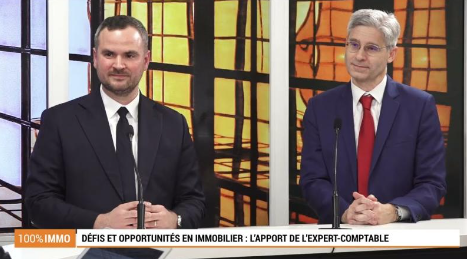U.S. Tax Reform the Corporate Impact French Companies and American Subsidaries

In 2017, American President Donald Trump with the support of his Republican party pushed through an in-depth overhaul of American taxation. The reforms pose many questions for companies, many which will only be clarified when U.S. tax instructions are published later this year.
Most of the known provisions, are unambiguously part of a proactive fiscal policy to attract or bolster US groups and their assets in the United States. It is also far from being totally neutral for foreign investors, especially French investors.
What we know…
Big reduction of U.S. corporate income tax rate
The U.S. corporate tax rate will go from 35% to 21%, starting in January 2018, in actual practice from 38.9 % to 25.75 % (combining the federal rate and the « state rate » defined by each state).
Competitively, the United States will now have the second lowest corporate tax rate of the G7 countries, just behind the UK. In France, a comparable corporate tax rate of 25 % will be reached in 2022.
Shift from Global to National…..
The American tax system, historically based on a system of taxation of income at the global level, with mechanisms for imputation of foreign tax credits, is transformed into a system of territorial taxation with an exemption of dividends received through a deduction.
- This change, which applies to distributions made in 2018, requires a holding period of securities of at least one year. This is in practice an alignment with the equivalent plans of French parent companies and subsidiaries ;
- this however is counterbalanced by a transitional measure called the « toll charge ».
Where pre-existing and untaxed reserves since 1986, of foreign subsidiaries held by at least 10 % by an American entity, are automatically taxed at the end of 2017, with the benefit of a rate of 15.5 % on cash or equivalent assets and 8% on assets other than those corresponding to cash ;
- These same reserves would have been taxed at 35% in the past with the benefit of a tax credit corresponding to the tax paid abroad ;
- It is applicable whether the sums are repatriated or not in the United States ;
- The payment of the “toll” is calculated in one go but may nevertheless be spread over eight years.
New Features……
Investment and Financing :
- A deduction of 100 % from the so-called « full expensing » investment expenses is planned between 2017 and 2022. The measure will apply widely. It aims to massively support investment in the US tool industry, excluding real estate, by accelerating the deduction of expenses that were traditionally amortized over several years ;
- There is also a rule limiting interest deductions to 30% of an adjusted taxable profit corresponding to an EBITDA equivalent for the years from 2018 to 2021 and then to an equivalent of EBITDA from 2022.
Global Intangible Low-Taxed Income- (GILTl) :
- Is designed to discourage the erosion of the US tax base by maintaining or automatically taxing foreign intangible assets and the profits they generate in the United States ;
- GILTI is complex to calculate, in practice has a much wider scope than intangibles because it targets all assets that would not be routine assets held by US group subsidiaries ;
- These non-routine profits are taxed according to US tax with a deduction of 50%.
Foreign-Derived Intangible lncome (FDll)
- Is an incentive that aims to combine with the GILTl by granting to American companies a super deduction of 37.5% since their deemed intangible assets are located in the United States ;
- In practice, this amounts to taxing the profits generated by this type of asset at the attractive low rate of around 13%.
Base Erosion and Anti-Abuse « BEAT »
- provides for a minimum tax of 10% on payments made to affiliated entities located abroad, which essentially penalizes the re-invoicing of providing services, royalties and interest to a US corporation
What to be Watching for…..
French groups established in the United States, or the French subsidiaries of American groups, are likely to be impacted by the US tax reform. Additional costs in the case of payments outside the United States or gains from investments in the United States could be effective because of these new tax rates.
As the intent of the reforms are to promote activities centered in the United States and conducted there (autonomously) companies may want to review their development and location of intangible assets, their financing methods, and more generally the economic models chosen to carry out their business activity in the United States.
It’s important to remember that these highly political set of tax reforms, based on Trump’s electoral slogan « Make America Great Again » may find pushback from the World Trade Organization among others. But for the moment, it’s in the affected companies’ best interest to be clear of the effect these changes have on your operations and organization.
 Didier Hémion
Didier HémionPartner,Chartered Accountant


